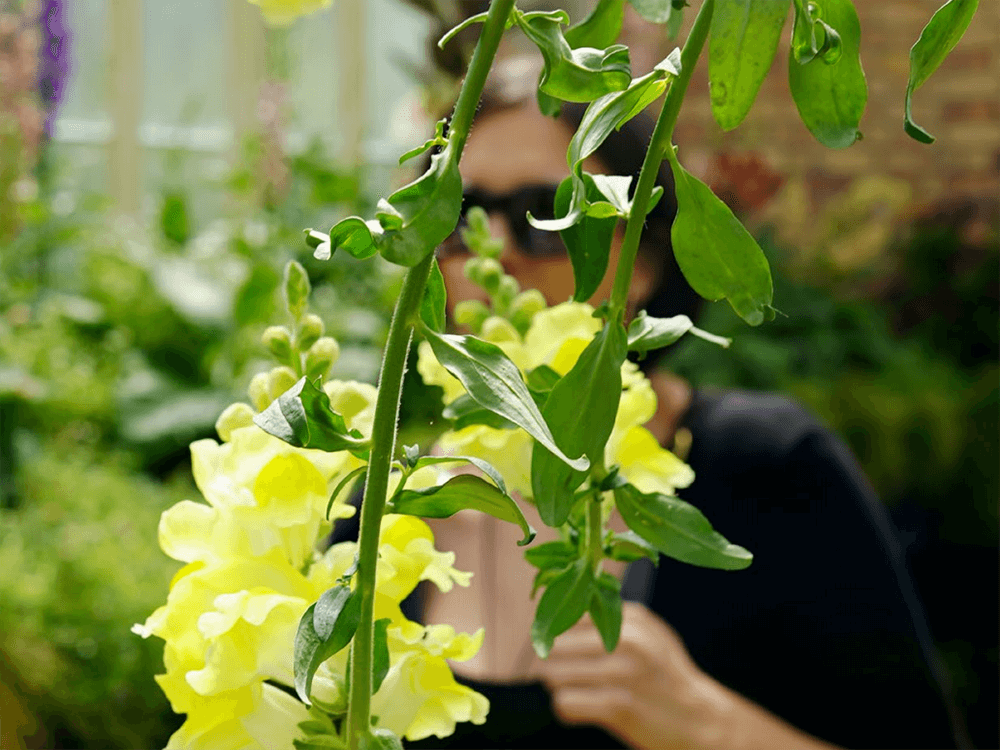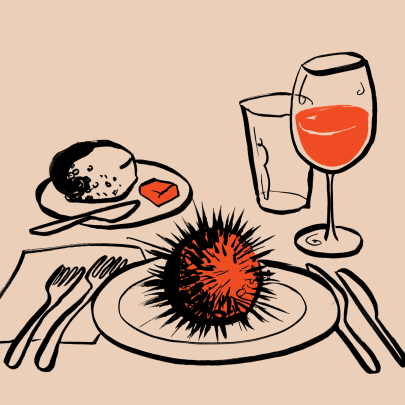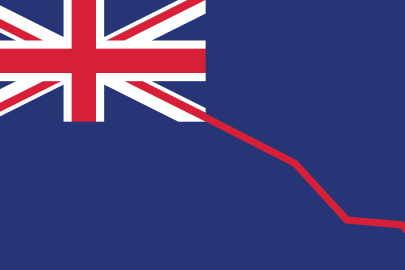Feb 23, 2021 Society
Never mind the cannabis referendum result — or the supposed availability of medicinal cannabis — this ‘green fairy’ is still prepared to defy the law to give people what they want and need.
The official result of the weed referendum wasn’t yet known the day I drove a couple of hours north of Auckland to meet a green fairy (a supplier of illegal medicinal cannabis) whose brazenly visible online presence shone like a beacon from a future we might then have been heading towards.
Aureila Ora — her real name, for obvious reasons, will remain unmentioned — met me at the door of her rented home, where a copy of my book on cannabis and its place in New Zealand society sat on the arm of a sofa. Lunch was fragrantly near ready, and her story unfolded after the olive-infused chicken emerged from the oven, served with rice and steamed broccoli — simple food, consciously chosen, demanded by a digestive system constantly on the verge of revolt. After years of seeking something within the confines of conventional medicine to ease this condition, she’d found cannabis. Her customers, she said, often shared that part of her story. “A lot of these people are similar, in similar situations. They don’t trust their doctors. The doctors are not helping them.”
There is, if you spend any time with the subject of medicinal cannabis, and time with its exponents, a sense of distrust out there: a fissure has formed between the traditional structures of healthcare — often conservative, often unwilling to venture into the cannabis realm — and those for whom cannabis eases their conditions. Ora exemplified that break: at 36, she is a grizzled veteran of the hospital bed, the doctor’s office, the waiting room. She was in her early 20s when the first indications of bodily malfunction materialised in the form of severe stomach cramps, and she was diagnosed with Crohn’s disease. Then followed the ordeal of finding a medicine that worked. “They trial you on the shitty cheap medication and they bump you up to the next in line, and it’s this process of elimination.” Steroids bridged the months it took for each new drug to take full effect. In the meantime, she was malnourished, losing blood, afflicted by splitting headaches. Her mental health suffered. “Depression and anxiety from the social aspect because of the complications you are dealing with: severe diarrhoea, incontinence, all that sort of stuff , that nasty stuff that a young adult doesn’t want — that nobody wants — to be dealing with.”
A drug called mercaptopurine, often used to treat leukaemia, allowed her to live almost normally — a career in advertising and television, here and abroad, and later her own skincare brand — and in her late 20s she was advised her condition was in remission and she could come off her meds. Soon her symptoms “just came back with a vengeance, like nothing I could have imagined”. When she returned to mercaptopurine, it no longer worked — nor did anything else. Her condition regressed into full-blown pancolitis. For the past six years, she said, “I’ve basically been trying to fight for my bowel, because if the doctors had their way they would’ve removed it years ago. I was like, ‘Fuck no, you are not taking it.’”
A colectomy, touted by doctors as a cure, would, she reasoned, only replace her existing symptoms with others, which would last for the rest of her life. “Shitting into a bag six times a day, emptying it, not being able to wear certain clothes or go to the beach… you are going to be dehydrated for the rest of your life, you have to take anti-diarrhoea medication, all this stuff they don’t want to talk about.”
She felt unlistened-to by doctors and that, not following their advice, she was placed in the “too-hard basket”. She was in and out of hospital, back on that familiar treadmill of medication after medication. Nothing worked, until a chance return to the European country from which her parents emigrated when she was a toddler. An infusion of a drug named vedolizumab curtailed the worst of her symptoms, but that same treatment, when she had to return at the end of 2018, wasn’t funded here. She resolved, while that European infusion remained fleetingly in her system, to find a different way.
With the help of a Chinese herbalist, she eased off her pharmaceutical drugs and began using cannabis, something she’d smoked and eaten for fun “on and off ” since teenagehood, to treat the worst of her symptoms. She began to study. The more she learnt about the plant, the more she realised it could help with other aspects of her condition, like lowering her inflammation and helping to treat the osteoporosis the steroids had caused. She made a cannabis balm, which she began mixing into a post-dinner hot drink to soothe her off to sleep at night, when the worst of her symptoms flared. She’d rub that same balm into her stomach, for relief from digestive pains, and into her temples for the headaches. Friends asked if they could try it, too — then friends of friends. Her ill health had left a legacy in her finances, and she resolved to turn the emerging enterprise into “a bit of a business”.
And then came the lockdown. “People,” she said, “didn’t have access to their medicines. They weren’t able to get what they needed.” She was operating a legitimate food business that was designated as an essential service; in this way, she could send out her orders in legal disguises. She began publicising her efforts on social media — where her aesthetic blends classical weed iconography with artfully stylised product shots — and business “just really took off . I had lots of people contacting me; I was doing consultations the whole time.”
She estimated she sent out a “hundred-ish” orders a week, she has engaged a creative to work on her branding, and an ambitious colour-coded business plan is laid out on her desk. But at the beginning she found herself “in the deep end”. “All these people contacted me with all these different complications and I had to throw myself in there and just try and help.” She wore the steepness of that learning curve on her hand, where a chemical burn from an extraction gone wrong had left a scar.
Concern about legal trouble she was in danger of courting was overridden by the good she saw she was doing. “I know that I’m helping people, and I know that I’m making a difference in their lives. I know that they are struggling because this current system isn’t working. I stopped being so cautious.” There had also been guidance and encouragement from older veterans of the movement, emissaries from a model of healthcare different entirely from that in which she spent her 20s enmeshed — a network of sufferer-practitioners who shared her unsatisfactory history with conventional healthcare, and who reason that if this particular plant works for them, isn’t it worth ignoring the law to offer the same relief to others? It should be said that the evidence isn’t yet in for the efficacy of cannabis for many of the conditions Ora’s customers use it for, and she doesn’t claim it as a cure-all. “I’m trying to help and if it does cure somebody and it gives them a better quality of life, then great,” she said, “but I’m not claiming to fix their lives. If I can help them, then I will try.”
She showed me her products: little tubs of cannabis-infused honey, which she sells on behalf of a local producer, their green or white lids denoting high or low strength; infused chocolate setting in trays in the fridge; infused oils disguised in reused wine bottles in a wine rack. There are also the medicinal cannabidiol products — 1850 Hemp Co, Pure Spectrum, EndoPet — all imported from countries with more permissive regimes. They are mailed to her, discreetly packaged, through the post, but she awaits the day a package is intercepted — or, worse, that she is. “I don’t know if I’m gonna get a nice cop or I’m going to get a shitty cop, I don’t know. Well, I hope no cops show up, that’s the whole point, but they could make a point out of me.”
She keeps only a limited amount of product on site; the general goal is to “try to make it look like less of a production line”. One quirk of the 45-year-old Misuse of Drugs Act — likely, for at least the foreseeable future, to be the legislation she defies — is that while cannabis itself is in the lowest Class-C category, “preparations… produced by subjecting the cannabis plant to any kind of processing” are classified as Class B drugs. Those little squares of medicinal chocolate setting in the fridge are deemed as serious a breach of the law as amphetamine and morphine. Their manufacture and supply could draw a 14-year sentence.
Medicinal cannabis, since the passage of the Medicinal Cannabis Amendment Act in 2018, is legal — but for most, that is in name only: the barriers to access, from price to the complications of going through a sceptical medical establishment, mean those legal medicines get to only a fraction of those they may help. The rest — at least the rest who are prepared to break the law — rely on the black market (or the ‘green market’, as practitioners often call it). Operations like this one are excluded from the pharmaceuticalised medicinal scheme, which is geared towards big business — and even if the referendum had gone the other way there would have been no achievable legal way for Ora to operate. But there may not have been the need once a regulated market was up and running, as health-focused products and strains like some of those she offers appeared on dispensary shelves. The cannabis literacy that the nation’s green fairies have accrued under the shadow of prohibition might have found a wider expression.
But, for now, things remain unchanged — not that either of us knew that when I said goodbye. The results came in soon after we met, and what she said then stands now: “People are still suffering and the system is not working… I’m going to keep doing what I’m doing until something changes. Or unless I am forced to stop.”






